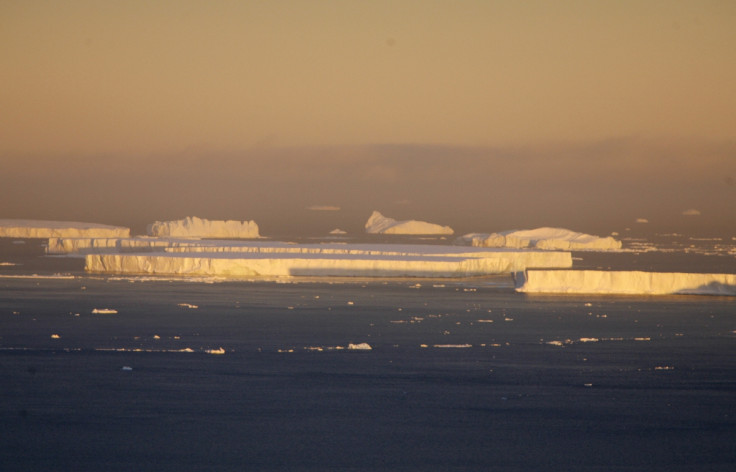Global Warming: Antarctic Ice Shelves Will Disappear in 200 Years, Scientists Claim

Floating ice shelves in Antarctica will disappear within the next 200 years as a result of global warming, experts have said.
The loss of these ice shelves, as a result of disappearing snow, will lead to a rise in sea level, researchers at Utrecht University and the British Antarctic Survey have found.
Published in the Journal of Glaciology, lead author Peter Kuipers Munneke pointed out two events where floating ice shelves in the north of the Antarctic Peninsula suddenly collapsed.
The authors said that these two events, in 1995 and 2002, were the result of the disappearance of the snow layer on top of the ice shelves.
"This was a spectacular event, especially when you imagine the size of these ice shelves, which are several hundreds of metres thick, and have been in place for over 10,000 years," he said.
Researchers said that snow disappearance was an important factor in ice shelf collapse. They say the snow layer regulates the effect of meltwater lakes on the ice shelves.
"If we continue to burn fossil fuels at the current rate, almost all ice shelves in the Antarctic Peninsula will be under threat of collapse in the next 200 years."
Lead author Kuipers Munneke
If the snow layer is thick enough and cold enough, all the meltwater can sink into the snow and refreeze. However, as global temperatures increase, so too does the amount of meltwater, causing snow layers to become thinner.
If the meltwater cannot refreeze, it forms lakes on the surface of the ice shelves. As it drains through, the cracks and faults become wider to the point where they eventually cause the ice shelf to disintegrate.
Based on their calculations using two different climate scenarios, the scientists say many more ice shelves will disappear over the next two centuries.
Once an ice shelf has collapsed, it can no longer provide resistance to the flow of glacier, which then speeds up significantly, leading to an even greater increase in sea level rise.
Munnekke said: "If we continue to burn fossil fuels at the current rate, almost all ice shelves in the Antarctic Peninsula will be under threat of collapse in the next 200 years. Only the two largest ones seem to be safe.
"Even in the much colder eastern part of Antarctica, some ice shelves could disintegrate. If we manage to keep global warming below the European Union target of 2C, more than half of the ice shelves could be saved, compared to no action taken on emissions reductions," he said.
© Copyright IBTimes 2024. All rights reserved.









